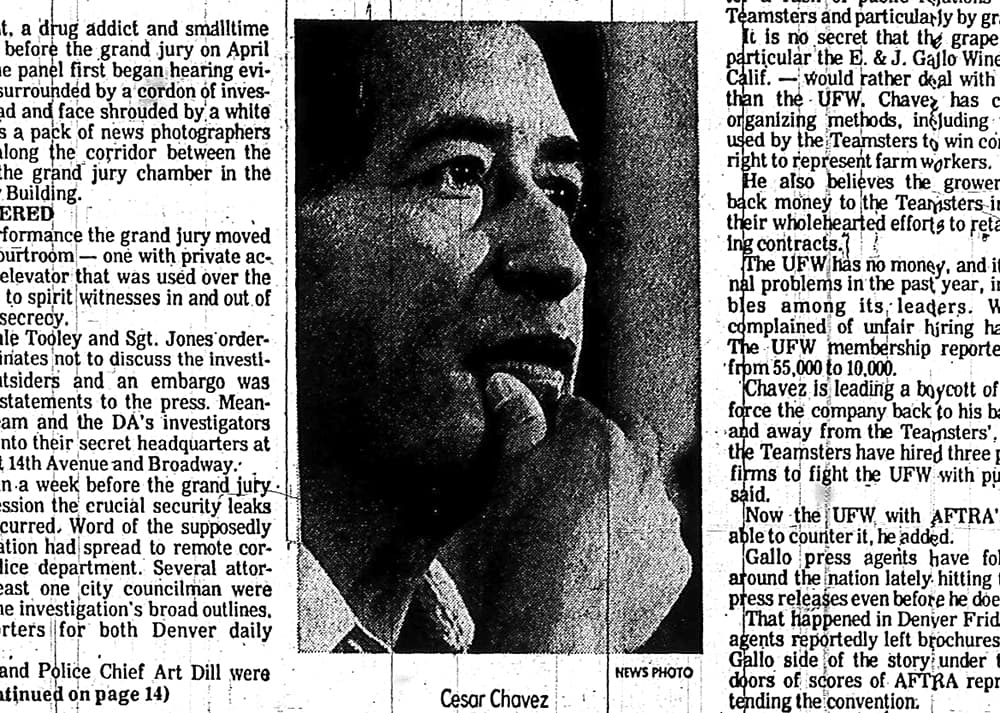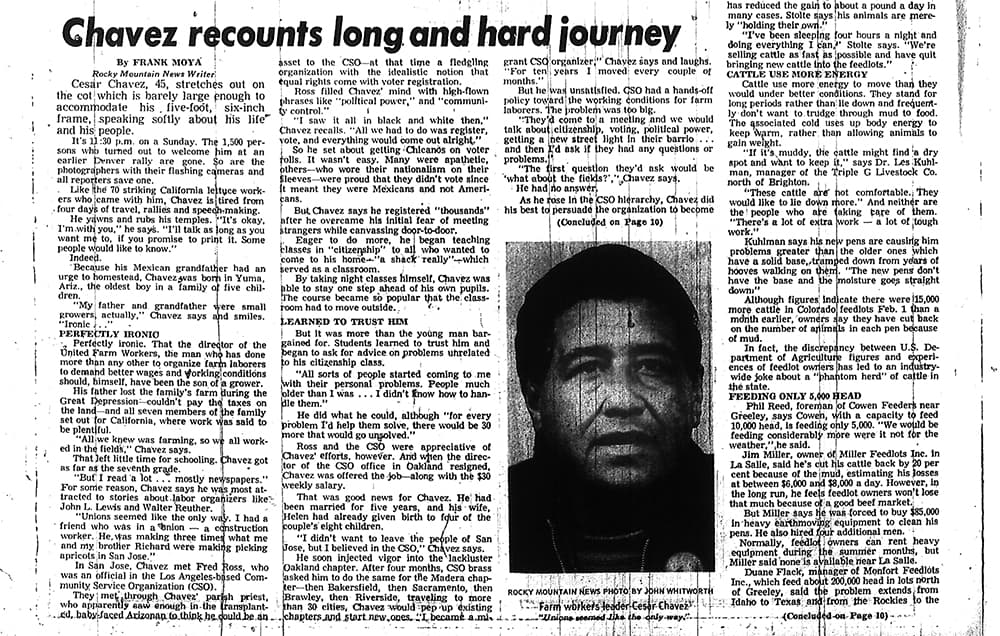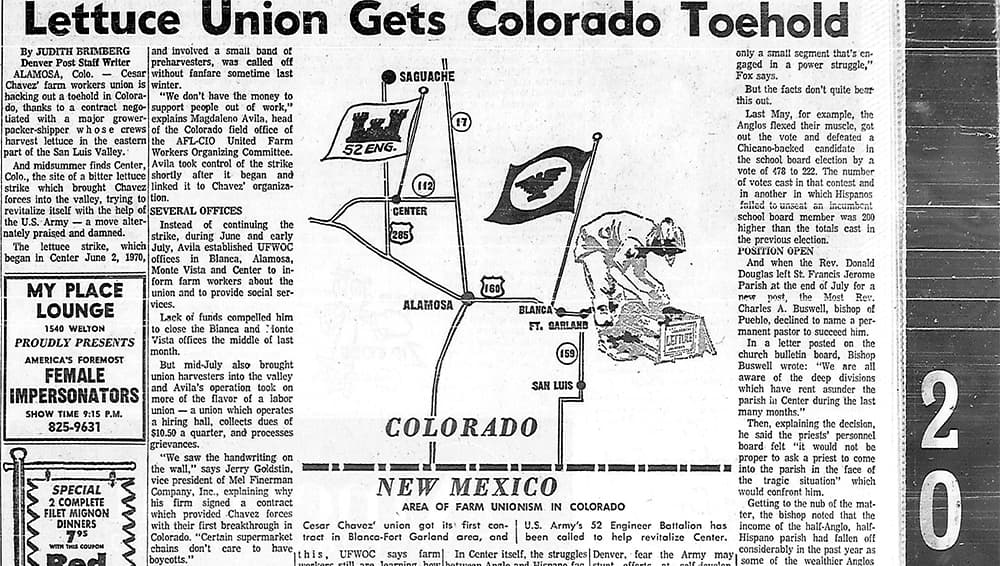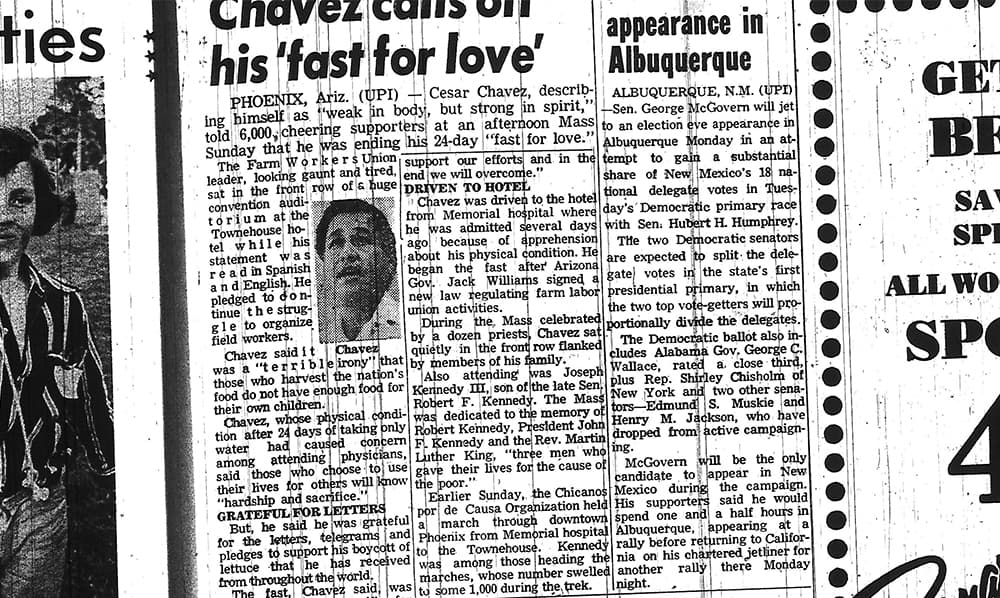
A tired Cesar Chavez sat down with the Rocky Mountain News nearly 30 years before Colorado decided to honor the Latino labor leader with his own special holiday.
Chavez told the Rocky in 1973, "Tell them to think about the migrant workers who travel the width and breadth of this country to harvest its food and find out when they get back to where they started they're poorer than they left."

"Tell them to remember every time that they sit down at the table that the food is there because of some man, woman or child who is hungry."
In 2001, Colorado Gov. Bill Owens signed into law a bill recognizing March 31, Chavez's birthday, as an optional holiday for state employees. The optional part means state workers can take the day off in lieu of another holiday but government offices are required to stay open.
Referendum E in 2002 would have made the day an official holiday, but the measure overwhelmingly failed, only getting about 21 percent of support in a statewide vote.
Hundreds of Coloradans turned out to see the labor leader during his visits during the '70s.
Just a couple of years before the '73 interview with Rocky reporter-turned-attorney Frank Moya, Chavez and his group, the United Farm Workers of America, embarked on what ultimately become a multi-year battle that would leave crops to rot and at least one person dead.

The movement to raise the pay and benefits for migrant field hands who picked lettuce originated in California before gaining worker and consumer support in several agriculture communities including, as the Denver Post reported, Colorado's San Luis Valley starting in 1971.
A short-lived strike by lettuce pickers and packers in Center -- along with a corresponding boycott of the company's produce in other places -- ultimately led to the Mel Finerman Company Inc. providing Chavez and his allies with "their first breakthrough in Colorado," according to Denver Post reporter Judith Brimberg.
The company, a major grower-packer-shipper in the San Luis Valley, agreed to pay higher wages and provide other services to workers.

Chavez was an Arizona-born Mexican-American who promoted non-violent practices like fasts, boycotts, strikes and demonstrations in his effort to improve the lives of farm workers. He and the UFW were ultimately successful in moving the mark forward for migrants, Mexican-Americans and farm workers. Today in Colorado, organizations like the Colorado Farm Bureau are pushing for protections for migrant workers .
In 2011, President Barack Obama proclaimed March 31 of each year as Cesar Chavez Day.

"Raised in the fields of Arizona and California, Cesar Chavez faced hardship and injustice from a young age," Obama said in a statement. "At the time, farm workers toiled in the shadows of society, vulnerable to abuse and exploitation. Families like Chavez's were impoverished; exposed to hazardous working conditions and dangerous pesticides; and often denied clean drinking water, toilets and other basic necessities."

Chavez reminds us, Obama said, one person can change the course of a nation and improve the lives of countless individuals.
"As we face the challenges of our day, let us do so with the hope and determination of Cesar Chavez, echoing the words that were his rallying cry and that continue to inspire so many today, 'Sí, se puede' -- 'Yes, we can,' Obama said.
Business & data reporter Adrian D. Garcia can be reached via email at [email protected] or twitter.com/adriandgarcia.
Subscribe to Denverite's newsletter here bit.ly/DailyDenverite.











